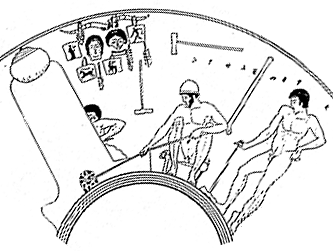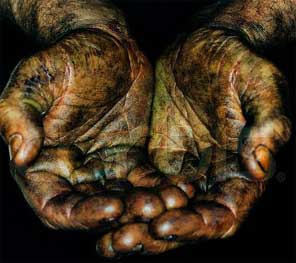
Last week at work I was given information on a "Back to Work" type course for people recovering from addiction. It was organised by a government agency. Each week of the 8-week course incuded a 2 -3 hr slot for Reiki healing. As I feel that Reiki is a "not-sourced-by-God" form of healing, I said that I would not want to recommend this to clients. Within this I was struggling with the whole question over whether I was denying the clients their right to choice by not notifying them of the option. However, what I did not realise was that my comments were also to stir up really hot feelings among my co-workers. The issue was not over the client's choice, but over my labelling of Reiki as "wrong". Other workers, who are also Christians, had used Reiki in the past and saw no problem with it. As I discussed their reaction to Reiki, and questioned their consistency I actually presented quite a condemning voice.
Afterwards, I apologised for having made them feel condemned (although I maintained that I also had a right not to recommend Reiki as a matter of conscience).
So how does a person deal with this situation?
I like the story in Acts 19:11-20, where many Corinthians who appear to be believers are continuing to practice forms of magic with a Christian veneer to them. But at some point the magic backfires, and the power of Jesus-centred, Jesus-sourced healing is recognised as something different from what they were doing. Confronted with this power, they reject their magic. I believe there is something in praying for believers to experience the true power of God at work. It is only in this way that other forms of power that seem good can pale into insignificance. To preach of evil when something like Reiki seems only to cause good, particularly in light of a normal church experience being devoid of God's healing power, is possibly a poor response. Rather, pray for a change in church experience.

Another thought. I was preparing a sermon on Ezekiel 47:1-12 (the River of God) this week, and also reflecting on how my work colleague had felt after I had tried to persuade her that Reiki was wrong. The River of God produced purity in polluted water. If John 4:14; 7:38-39 can be seen to be a continuation of the theme, the River is sourced in us through the Spirit. So when people are truly encountering the Kingdom of God through us, should they be going away feeling dirty, or thirsty for the life-empowering presence of God?
Afterwards, I apologised for having made them feel condemned (although I maintained that I also had a right not to recommend Reiki as a matter of conscience).
So how does a person deal with this situation?
I like the story in Acts 19:11-20, where many Corinthians who appear to be believers are continuing to practice forms of magic with a Christian veneer to them. But at some point the magic backfires, and the power of Jesus-centred, Jesus-sourced healing is recognised as something different from what they were doing. Confronted with this power, they reject their magic. I believe there is something in praying for believers to experience the true power of God at work. It is only in this way that other forms of power that seem good can pale into insignificance. To preach of evil when something like Reiki seems only to cause good, particularly in light of a normal church experience being devoid of God's healing power, is possibly a poor response. Rather, pray for a change in church experience.

Another thought. I was preparing a sermon on Ezekiel 47:1-12 (the River of God) this week, and also reflecting on how my work colleague had felt after I had tried to persuade her that Reiki was wrong. The River of God produced purity in polluted water. If John 4:14; 7:38-39 can be seen to be a continuation of the theme, the River is sourced in us through the Spirit. So when people are truly encountering the Kingdom of God through us, should they be going away feeling dirty, or thirsty for the life-empowering presence of God?

